PLANT APOCALYPSE

In the 19th century, Charles Darwin dreamed of a list which would describe all of the world's known plants and where they could be found. This October, the Royal Botanic Gardens at Kew fulfilled that dream by publishing what has been described as the most comprehensive plant database ever produced.
But the world has changed since Darwin dreamed up the idea. Hence the report, named the State of the World's Plants and Fungi 2023, not only details the discoveries of over 18,000 new plant and fungi species since 2020, but also the incredible level of extinction risk they face.
Over 200 scientists from 30 countries were involved in producing the 60,000 peer-reviewed species conservation assessments that underpin the report. We spoke to one of those scientists Dr Matilda Brown, conservation science analyst at Royal Botanical Gardens Kew - to learn more about it.
WHAT DID THE REPORT FIND?
The report provides a global health check on the world's plants and fungi, and it comes down to two big numbers.
First, using new modelling, we found that 45 per cent of all flowering plants are threatened with extinction.
And second: we found that, of the species we have yet to describe (in a formal scientific paper), in the next years and decades over three quarters - 77 per cent - are already threatened with extinction. For fungi, it's harder to get that big picture of extinction risk, because we've only described around 10 per cent of fungal species. And of those, less than one per cent have conservation assessments [papers that detail how at risk they are].
WHAT COULD WE LOSE?
A world without plants and fungi is a world without humans. Plants underpin all aspects of humanity: they're what we eat, what we wear, what we get our medicines from.
Denne historien er fra November 2023-utgaven av BBC Science Focus.
Start din 7-dagers gratis prøveperiode på Magzter GOLD for å få tilgang til tusenvis av utvalgte premiumhistorier og 9000+ magasiner og aviser.
Allerede abonnent ? Logg på
Denne historien er fra November 2023-utgaven av BBC Science Focus.
Start din 7-dagers gratis prøveperiode på Magzter GOLD for å få tilgang til tusenvis av utvalgte premiumhistorier og 9000+ magasiner og aviser.
Allerede abonnent? Logg på
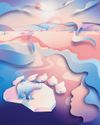
We can learn valuable lessons from the ‘polar bear capital of the world'
As the climate crisis pushes humans and animals closer together, it's crucial that we coexist with kindness
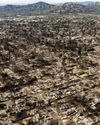
The aftermath
ALTADENA, CALIFORNIA
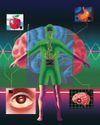
The map that may lead to a new obesity treatment
A better understanding of the pathways in the human hypothalamus has huge possibilities for medicine
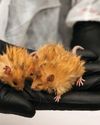
Is creating a 'woolly mammoth mouse' a step too far for biotechnology?
Are scientists so preoccupied with whether or not they could bring back mammoths, that they're not concerned with whether they should?
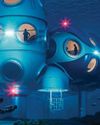
GOING DEEP
An advanced new research station is being developed to explore the potential for a human settlement under the ocean
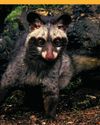
THE ASIAN PALM CIVET
The world might have paid little attention to the Asian palm civet, were it not for the Dutch settlers who planted coffee trees on the islands of Java, Sumatra and Sulawesi, some 300 years ago.

Energy companies shift blame to consumers
Study finds top polluters weave 'eco-hero' narratives
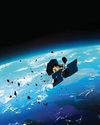
ARE SATELLITES BURNING UP IN THE ATMOSPHERE BAD FOR THE ENVIRONMENT?
About 13,000 satellites currently orbit Earth, roughly 10,000 of which are operational. But that number is set to skyrocket, with a staggering 50,000 new satellites on track to join them by 2030.
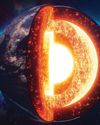
Earth's inner core may be changing its spin and its shape
Changes to seismic waves travelling through the planet could reveal unusual activity in Earth's core

WHY DO I FIND IT SO DIFFICULT TO SWITCH BETWEEN TASKS?
First, the good news is you’re not alone – most people are terrible at task switching. Secondly (and in even more good news), psychologists have been studying it for decades to figure out why.
